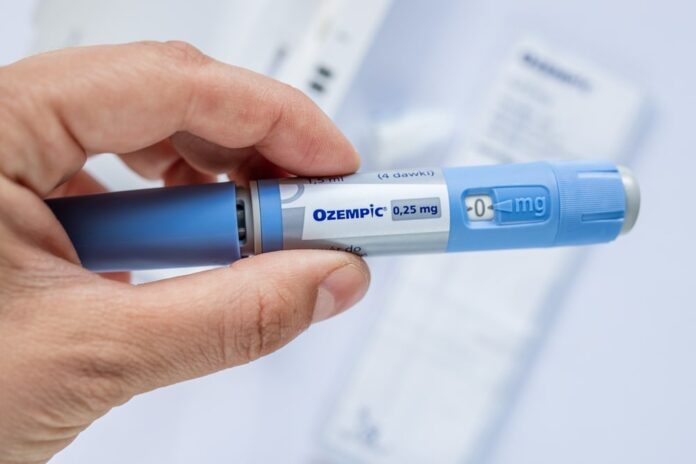For individuals seeking effective solutions to manage excess weight under medical supervision, the Ozempic Injection has emerged as a transformative tool in modern obesity treatment. Unlike traditional approaches, this doctor-led therapy offers a clinically structured pathway to support weight loss by regulating hunger hormones, improving metabolic responses, and creating sustainable change. Physicians employ Ozempic strategically, tailoring it to the unique health profile and weight goals of each patient. This medically guided use of Ozempic Injection in Dubai prioritizes precision and safety, making it increasingly preferred in advanced obesity care systems.
What Is Ozempic and How Does It Work?
Ozempic (semaglutide) is a once-weekly injectable GLP-1 receptor agonist that mimics a natural hormone to regulate blood sugar and appetite. Doctors originally used it to manage type 2 diabetes. However, its appetite-suppressing effects have proven effective in weight loss treatments as well.
Why Doctors Recommend Ozempic for Weight Loss
Physicians recommend Ozempic Injection primarily due to its effectiveness in curbing hunger, improving metabolic markers, and supporting sustainable fat loss. It doesn’t merely suppress cravings; it changes the way the brain perceives food and satiety.
Doctors value its ability to:
- Trigger gradual weight reduction
- Support fat loss over muscle loss
- Complement personalized health plans
- Work in tandem with hormonal and metabolic needs
How Physicians Administer Ozempic Injection
The treatment begins after a full clinical evaluation, including metabolic tests, weight history, and lifestyle assessment. Once approved, a doctor guides the patient through the entire process of Ozempic use, including dosage, injection technique, and response tracking.
Steps often include:
- Medical history analysis
- Baseline measurement documentation
- Initiating treatment with the lowest effective dose
- Educating patients on injection areas (abdomen, thigh, upper arm)
- Setting up consistent weekly follow-ups
What Happens Inside the Body with Ozempic?
Ozempic mimics GLP-1 (glucagon-like peptide-1), a hormone that regulates appetite and insulin secretion. It:
- Activates receptors in the brain that signal satiety
- Delays gastric emptying, helping individuals stay fuller longer
- Optimizes insulin response, reducing blood sugar spikes
- Reduces the desire for high-calorie foods
Benefits of Doctor-Guided Ozempic Treatments
A physician-monitored Ozempic treatment delivers benefits that extend beyond weight loss. These include:
| Benefit | Description |
|---|---|
| Medical Supervision | Reduces risks by customizing dosage and tracking progress |
| Hormonal Balance | Supports regulation of insulin and appetite hormones |
| Sustainable Lifestyle Adjustments | Focuses on long-term weight management rather than quick fixes |
| Personalized Health Goals | Tailored to patient-specific body responses and metabolic needs |
| Improved Cardiovascular Health | Often accompanies reduced blood pressure and better lipid profiles |
| Increased Motivation | Supports the regulation of insulin and appetite hormones |
How Weight Loss Progress Is Monitored
Doctors use structured metrics and tools to monitor how the body is responding to Ozempic:
- Body Composition Analysis: Measures fat vs. muscle mass
- Metabolic Rate Testing: Tracks changes in calorie-burning efficiency
- Progressive Weight Logs: Weekly or biweekly weigh-ins
- Appetite Feedback: Qualitative assessments from patient responses
- Lab Tests: Evaluate blood sugar, cholesterol, and hormonal levels
Ideal Candidates for Ozempic Injection
Doctors evaluate multiple criteria before recommending Ozempic for weight loss. Ideal candidates include:
- Individuals with a BMI over 30 (or over 27 with health issues)
- Patients who have not responded well to diet or exercise alone
- People showing signs of insulin resistance
- Individuals struggling with emotional or hormonal eating patterns
- Adults are committed to ongoing medical follow-ups
Why Medical Supervision Matters Most
Ozempic’s success is rooted not only in its pharmacology but in the expertise of doctors who supervise its use. Medical supervision ensures:
- Proper dosage titration to avoid under- or over-treatment
- Accurate progress tracking that aligns with realistic weight goals
- Management of treatment plateaus using professional strategies
- Ongoing health evaluations to optimize overall well-being
How Doctors Adjust Treatment Plans
Not all weight loss journeys are linear, and physicians are prepared to adapt plans to maintain effectiveness. Adjustment strategies include:
- Changing the injection timing for better hormonal sync
- Incorporating behavioral therapy to overcome eating triggers
- Enhancing nutrition guidance without calorie obsession
- Modifying physical activity levels based on stamina and comfort
- Switching or pausing treatment if needed for better alternatives
FAQ’s:
1. How long does it take to lose weight with Ozempic?
Patients often start noticing results within 1–2 months, with most significant changes seen around the 3–6 month mark under medical guidance.
2. Is Ozempic suitable for non-diabetic weight loss?
Yes. Many physicians use Ozempic for weight loss in non-diabetic individuals when clinically appropriate.
3. Can I stop taking Ozempic after I lose weight?
Doctors evaluate weight maintenance plans carefully. In some cases, patients transition off Ozempic with continued supervision.
4. Will I regain weight after stopping Ozempic?
Not necessarily. If lifestyle changes are sustained and the treatment is managed by a doctor, long-term maintenance is possible.
5. Do doctors combine Ozempic with other treatments?
Yes, in some cases. Ozempic may be paired with nutrition plans, counseling, or other physician-approved therapies for better outcomes.
Conclusion
Ozempic Injection offers a profound shift in how medical professionals manage excess weight. Its ability to regulate appetite, balance hormones, and improve metabolic function makes it a premier choice among doctor-supervised treatments. What sets this method apart is not just the efficacy of the injection itself but the precision and personalization that physicians bring to each case.






























